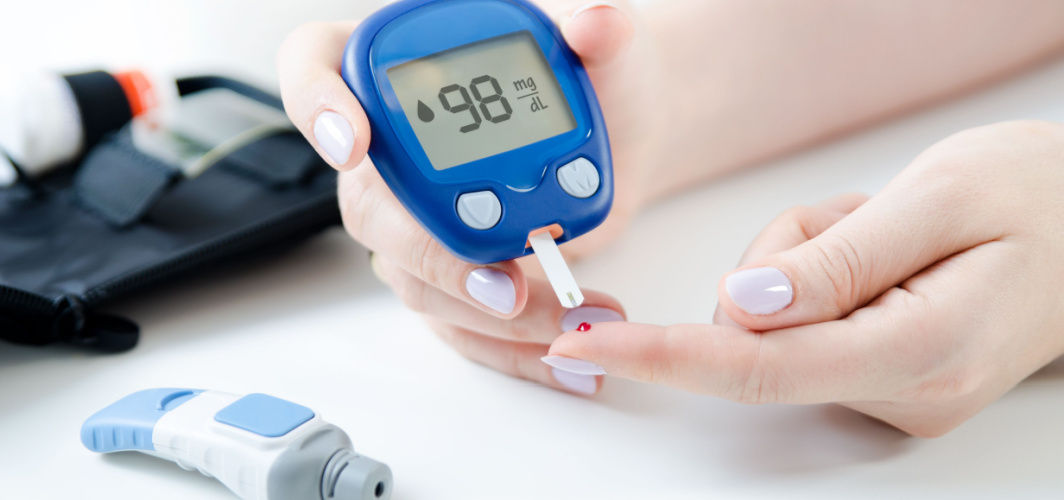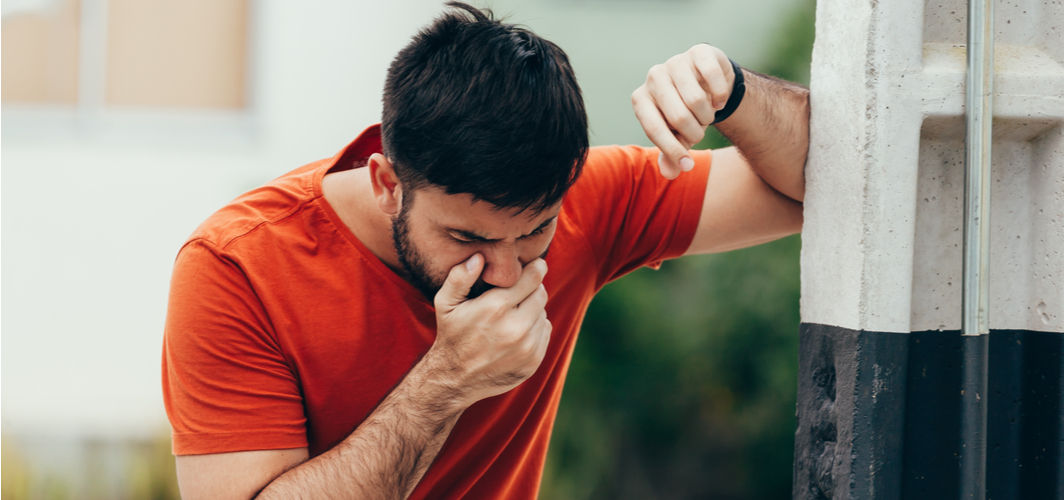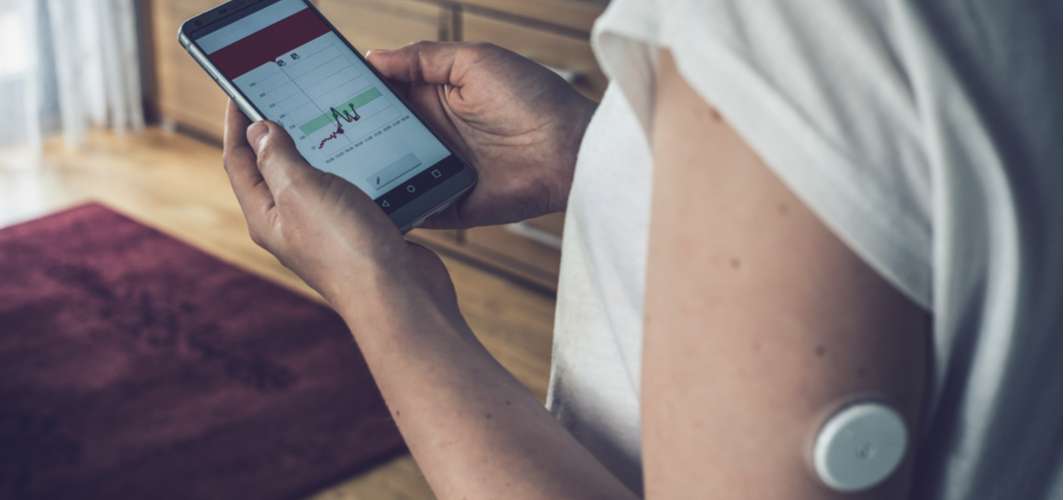Diabetes Management
6 Tips To Prepare For Diabetes Test
7 min read
By Apollo 24|7, Published on - 27 June 2023
Share this article
0
0 like

A diabetes test can help provide information about your risk of developing diabetes or determine if your current treatment plan is efficient for you. This guide will help you understand how to prepare for different diabetes tests and why it's essential. You will learn when to visit the doctor, what to expect during the test, and how to interpret the results.
Importance of Diabetes Test
Undergoing a diabetes test helps in:
1. Differentiating diabetes types: Getting tested help identify the specific type of diabetes you have, like type 1, type 2, prediabetes, or gestational diabetes. This allows doctors to create treatment plans that are right for you.
2. Accurate and early detection: Diagnosing quickly and accurately allows for early action. This improves your long-term health and lowers the chances of complications.
3. Personalized treatment: This test helps doctors create personalized treatment plans for your needs.
4. Monitoring progression: By monitoring changes in your blood sugar levels, doctors can make necessary adjustments to your treatment plan to keep it working well.
5. Preventing complications: Getting tested and receiving proper treatment can lower the risk of serious complications such as heart disease, kidney problems, nerve damage, and eye issues.
When Should You Go for Diabetes Tests?
Diabetes diagnostic tests are recommended if you experience the following symptoms:
1. Frequent Urination: Increased urine activity, especially at night, is one of the most common symptoms. Excess glucose in the blood prompts the kidneys to work harder to filter and remove it, resulting in more urine production.
2. Excessive Thirst: Diabetes can cause excessive thirst due to the body's attempt to replenish fluids lost through frequent urination. Increased thirst is a notable symptom even after drinking plenty of fluids.
3. Unexplained Weight Loss: Sudden and unexplained weight loss, despite regular eating habits, can be a symptom of diabetes. The body may lose weight as it cannot properly utilize glucose for energy, leading to muscle breakdown and fat loss.
4. Fatigue: Persistent fatigue and a lack of energy are common symptoms of diabetes. High blood sugar levels can hinder the body's ability to effectively use glucose for energy, resulting in feelings of exhaustion.
How to Prepare for a Blood Sugar Test?
When you notice the diabetes symptoms mentioned above, check your blood sugar level. However, you might need to prepare before going for the test. Things to keep in mind:
1. Fasting before the diabetes test
You'll need to fast for 8-12 hours before the test. This means not eating any food during that window. Follow the fasting duration recommended by your healthcare provide
2. What to eat before the diabetes test?
If you’re recommended fasting blood sugar test, you will have to avoid eating at all. Avoid having food at least 8-12 hours before the test.
3. Medication adjustments before the diabetes test
Discuss with your healthcare provider if you need to change or stop your medications before the test. Some medications, especially certain diabetes medications, may need to be adjusted or stopped temporarily to ensure accurate results. Follow your healthcare provider's instructions carefully.
4. Drink water before the diabetes test
While fasting is required, you can certainly drink water to stay hydrated. Avoid other sugary beverages unless you're told otherwise.
5. Wear comfortable clothes
On the test day, wear loose and comfortable clothing to make the procedure more manageable. Do not wear anything that has tight sleeves or restrains your blood flow.
6. Avoid smoking before the test
Completely avoid smoking before the test as it can hamper the results. Nicotine in cigarettes increases blood sugar levels
What to Expect During the Test?
During a diabetes test, here's what you can expect:
(1) Procedure
To perform a diabetes test, your doctor will draw blood from the vein on the inside of your elbow. The procedure involves:
- Cleaning of the area with an alcohol swab
- Placement of tourniquet on the upper arm to make the veins more visible
- Insertion of needle into the vein to draw small amount of blood
- Covering the spot with a bandage
(2) Duration
The test duration depends on the type of test. A fasting plasma glucose test takes a few minutes, while an HbA1c test requires a single blood sample and is quick. On the other hand, an oral glucose tolerance test requires multiple blood samples over a few hours.
(3) Potential Discomfort
The sample collection process is generally tolerable, causing minimal discomfort. If you feel anxious, communicating with a healthcare provider before a diabetes test is important. They can help you with anxiety management before the tests to ensure your comfort.
Understanding the Test Results
Your doctor may recommend one or more of the following tests based on your symptoms and health condition.
Test |
Normal Range |
Prediabetes Range |
Diabetes Range |
|
A1C Test |
Below 5.7% |
5.7% - 6.4% |
6.5% or higher |
|
Fasting Blood Sugar |
99 mg/dL or lower |
100 - 125 mg/dL |
126 mg/dL or higher |
|
Glucose Tolerance Test |
At 2 hours: 140 mg/dL or lower |
At 2 hours: 140 - 199 mg/dL |
At 2 hours: 200 mg/dL or higher |
|
Random Blood Sugar |
N/A |
N/A |
200 mg/dL or higher |
1. A1C Test
The A1C test provides an average measure of blood sugar levels over the past 2 or 3 months. It is used to assess long-term blood glucose control. The results help determine if a person has normal blood sugar levels, prediabetes, or diabetes.
2. Fasting Blood Sugar Test
This test measures blood sugar levels after an overnight fast. It helps identify how effectively the body regulates glucose when fasting. Elevated levels may indicate prediabetes or diabetes.
3. Glucose Tolerance Test
It measures how the body processes glucose over time. It involves measuring glucose at different intervals; fasting, and after consuming a glucose-containing drink. This test evaluates the body's ability to metabolize glucose and assesses how quickly blood sugar levels rise and return to normal. Higher blood sugar levels 2 hours after consuming sugary drink indicate prediabetes or diabetes.
4. Random Blood Sugar Test
This test checks blood sugar levels at any time of the day, regardless of fasting. It helps detect diabetes when immediate blood sugar measurement is required. A random blood sugar level of 200 mg/dL or higher strongly indicates diabetes.
Next Steps After Test Results
After your test is done, you must ensure to take care of your health, whether the results are positive or negative. You can do this by having:
-
Follow-up appointments
- Doctors can detect any new symptoms or problems that may occur.
- Doctors can find any underlying causes or factors contributing to the condition.
- These tests would allow the doctor to include specific actions, medications, therapies, or lifestyle changes to manage the condition.
- Doctors can change the treatment plan based on the patient's condition and the test results.
- These tests can help doctors prevent complications and improve the patient's overall health.
Conclusion
Preparing for diabetes test can help get accurate results. Consult with your doctor before the test to know about the preparations required for that particular diabetes test.
FAQs
Q. Can I take my regular medications before a diabetes test?
Consult your healthcare provider about taking medications before the test, as some medications can affect blood glucose levels and interfere with accuracy.
Q. Will I experience discomfort during the diabetes diagnostic test?
The tests are generally painless but some people may experience mild discomfort. However, it is usually minimal and disappears in a few hours.
Q. When will I receive the diabetes test results?
The delivery of the results can vary. Sometimes you may receive it the same day, while it can take a few days for some.
Q. What if the test indicates I have diabetes?
Your healthcare provider will discuss the results and develop a treatment plan, which may include lifestyle changes and medication management. Follow-up appointments involve monitoring and adjusting the treatment as needed.
Q. What is the best time for a diabetes test?
Take the test in the morning after fasting overnight. Avoid any food before the test but drink water to stay hydrated.
Medically reviewed by Dr Sonia Bhatt.
Diabetes Management
Leave Comment
Recommended for you

Diabetes Management
Acidosis: Types, Causes, Symptoms and Treatments
Excess acid can get accumulated in the blood, resulting in acidosis and if not treated, can result in shock, organ damage, and fatal outcomes.

Diabetes Management
Somogyi Effect: What Does That Early Morning Blood Sugar Spike Mean?
The Somogyi effect refers to a phenomenon where blood sugar levels drop too low during the night, triggering a compensatory release of hormones that raise blood sugar levels. This can lead to a serious blood sugar spike in the early morning. Some of the symptoms are night sweats, nightmares, evening weakness, and unexplained high morning blood sugar levels.

Diabetes Management
How to Control Your Blood Sugar This Navratri
Navratri fasting can be challenging for those with diabetes, but with careful planning, it's manageable. Start by consulting your healthcare provider for personalised advice. Opt for low-glycemic foods like buckwheat (kuttu) and amaranth (ramdana) and practice portion control to prevent overeating. Including protein sources and healthy fats in your diet can help control hunger and stabilise energy levels. Stay well-hydrated with water and herbal teas, monitor your blood sugar levels regularly, and choose sugar-free or low-sugar sweets mindfully. When breaking your fast, opt for a balanced meal to avoid sudden spikes in blood sugar. These strategies can help you enjoy Navratri while maintaining stable blood sugar levels.
Subscribe
Sign up for our free Health Library Daily Newsletter
Get doctor-approved health tips, news, and more.
Visual Stories

8 Fruits That are Incredibly Healthy for Diabetes
Tap to continue exploring
Recommended for you

Diabetes Management
Acidosis: Types, Causes, Symptoms and Treatments
Excess acid can get accumulated in the blood, resulting in acidosis and if not treated, can result in shock, organ damage, and fatal outcomes.

Diabetes Management
Somogyi Effect: What Does That Early Morning Blood Sugar Spike Mean?
The Somogyi effect refers to a phenomenon where blood sugar levels drop too low during the night, triggering a compensatory release of hormones that raise blood sugar levels. This can lead to a serious blood sugar spike in the early morning. Some of the symptoms are night sweats, nightmares, evening weakness, and unexplained high morning blood sugar levels.

Diabetes Management
How to Control Your Blood Sugar This Navratri
Navratri fasting can be challenging for those with diabetes, but with careful planning, it's manageable. Start by consulting your healthcare provider for personalised advice. Opt for low-glycemic foods like buckwheat (kuttu) and amaranth (ramdana) and practice portion control to prevent overeating. Including protein sources and healthy fats in your diet can help control hunger and stabilise energy levels. Stay well-hydrated with water and herbal teas, monitor your blood sugar levels regularly, and choose sugar-free or low-sugar sweets mindfully. When breaking your fast, opt for a balanced meal to avoid sudden spikes in blood sugar. These strategies can help you enjoy Navratri while maintaining stable blood sugar levels.